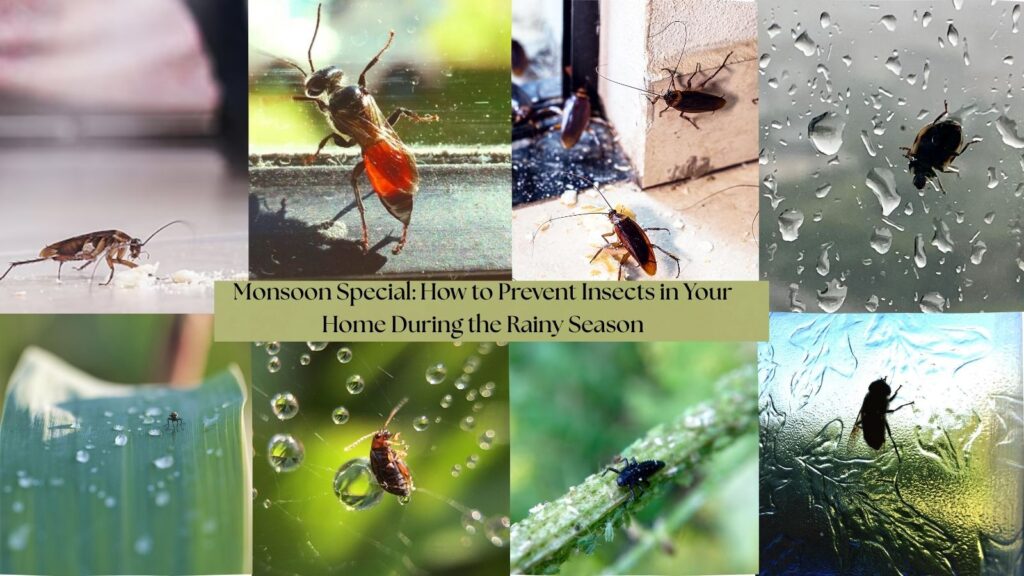
INFORMATION BY DOLPPHIN FACILITY MANAGEMENT PVT.LTD.
Monsoon Special: How to Prevent Insects in Your Home During the Rainy Season
In addition to providing an important break from the extreme heat, the monsoon also brings with it some undesirable visitors: pests. The rainy season provides the ideal conditions for termites, mosquitoes, cockroaches, and other pests to prosper. It’s time to take action if you’re sick of having creepy crawlies in your house every monsoon. We’ll provide helpful and tried-and-true advice in this blog to assist you maintain your house pest-free throughout the rainy season.
🚫 The Reasons Why Pests Increase in the Monsoon
Let’s first examine the reasons why pests are more active during the rainy season before moving on to solutions:
The stagnant water gives mosquitoes a place to nest.
Termites, ants, and cockroaches are drawn to areas with higher humidity levels.
Cracks and leaky pipes provide pests with access sites.
Dark, damp areas make perfect hiding places.
You can prevent infestations by being aware of these conditions.
.
 Typical Monsoon Pests to Be Aware of
Typical Monsoon Pests to Be Aware of
1. Mosquitoes thrive in water that is left stagnant, such as in buckets, drains, and plant pots.
Spread illnesses including chikungunya, dengue, and malaria.
2. Cockroaches
Enter via kitchen plumbing and drains.
cause allergies and harbor dangerous microorganisms.
3. Termites
Attack timber foundations and furnishings because of moisture.
frequently go missed until serious harm is done.
4. Ants explore houses in search of nourishment.
Establish colonies in damp, untouched places.
Ten Monsoon Pest Control Strategies You Can Implement Right Now
1. Maintain a Dry Home
Moisture attracts pests. Clean wet floors, look for leaks, and address damp areas right away, especially in bathrooms and kitchens.
2. Seal Points of Entry
To seal gaps, cracks, and crevices around windows, doors, and plumbing lines, use caulk or silicone.
3. Clear Drainage Spaces
Make sure your house is free of standing water. Regularly inspect pots, roof drains, coolers, and empty containers.
4. Put in place mesh screens
To keep mosquitoes and other flying insects out, cover windows and ventilators with mesh.
5. Apply Natural Repellents
Neem spray, camphor, eucalyptus oil, and lemon grass oil are safe and efficient insect repellents.
6. Maintain Your Garden To stop pests from using your garden as a breeding site, trim bushes, get rid of fallen leaves, and don’t water it too often.
7. Select Anti-Termite Therapy
Invest in a professional termite treatment, particularly if your house has wooden furniture or structures. For long-term protection, think about utilizing porous pipe systems.
8. Make Use of Bait Stations
Put gel baits or traps in places where pests are likely to be found, such as behind appliances, next to trash cans, and beneath sinks.
9. Steer clear of clutter
Unused cardboard boxes and other objects make excellent hiding places for pests. Maintain order and cleanliness in storage spaces.
10. Make an Appointment for Expert Pest Control Services
While do-it-yourself advice is helpful, a monsoon-specific pest control treatment from licensed experts provides piece of mind and long-term protection.
Advantages of Monsoon Pest Management
- Protect your health by avoiding vector-borne illnesses.
- Prevent damage by preventing termite infestation on walls and furnishings.
- Better Hygiene: Bid farewell to unpleasant smells and rodent feces.
- Peace of Mind: Rest easy knowing that your house is safe.
Regular observations of pests
Wire or wood damage
Musty odors emanating from wooden furniture
Pest droppings that are visible
After that, it’s time to schedule a monsoon-season pest control service. Professionals employ cutting-edge methods that produce long-lasting effects, such as fumigation, larvicide spray, gel treatment, and anti-termite porous pipe installation.
Conclusion 🔚
It’s not necessary for pests to accompany the monsoon season. You can enjoy the rains without worrying about mosquitoes in your bedroom or cockroaches in your kitchen if you heed the advice above and remain watchful. Never forget that prevention is always preferable to treatment.